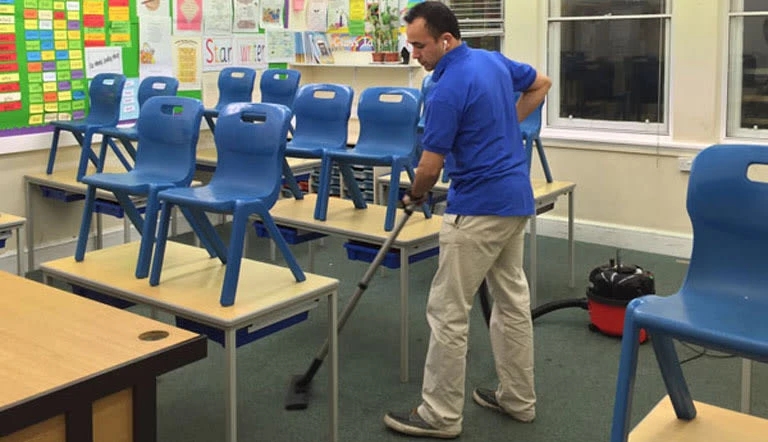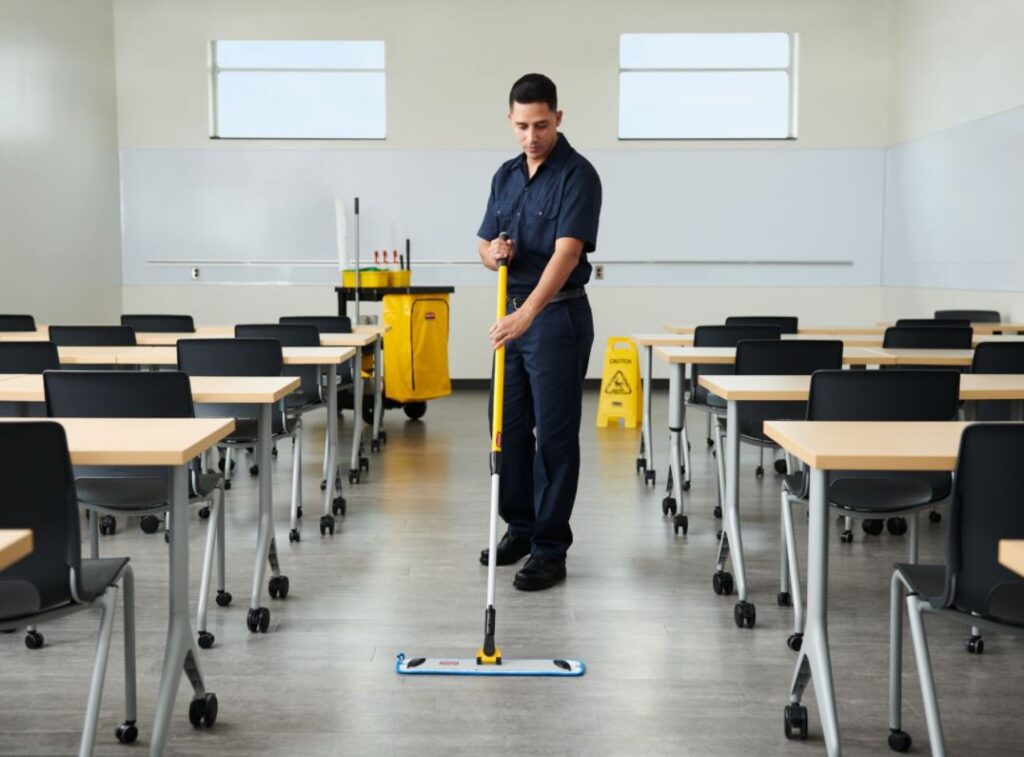
6 Reasons Why Regular School Cleaning is Important. We know that a clean learning environment can have several significant health benefits for students, teachers, and staff. Maintaining a clean school is essential for promoting overall well-being and the Star clean team takes pride in the work we do in order to help to create a conducive atmosphere for effective learning.
As we enter September, the summer holidays are well and truly over, and everyone is settling into a new school year. The Alliance Clean team has been busily working through the summer break, deep cleaning schools and getting them in pristine condition for everyone’s return.

We know that a clean learning environment can have several significant health benefits for students, teachers, and staff. Maintaining a clean school is essential for promoting overall well-being and the Star clean team takes pride in the work we do in order to help to create a conducive atmosphere for effective learning.
As we enter September, the summer holidays are well and truly over, and everyone is settling into a new school year. The Star clean team has been busily working through the summer break, deep cleaning schools and getting them in pristine condition for everyone’s return.
Here are just some of the key health benefits of a clean school and why regular school cleaning is so important:
Cleanliness in schools is essential for maintaining good health. A clean environment helps prevent the spread of illnesses, reducing absenteeism among students and teachers. When students are healthy, they are more likely to attend school regularly and be engaged in learning.
As we saw during the pandemic, the importance of a clean environment cannot be underestimated. A clean school helps prevent the spread of contagious diseases like colds, flu, and, of course, COVID-19. Regular cleaning and disinfection of surfaces, doorknobs, and common areas can minimise the transmission of germs.
Clean schools have improved air quality:
Regular school cleaning also reduces allergens such as dust mites, pollen, and mould, which can trigger allergies and exacerbate asthma symptoms. Clean schools typically have better indoor air quality, with proper ventilation and regular cleaning helping to remove allergens, dust, and pollutants from the air. This, in turn, creates a healthier environment for students and staff. Good air quality can lead to increased cognitive function and better concentration. Improved indoor air quality can lead to better respiratory health for everyone in the learning space. Consistently maintaining a clean learning environment can lead to long-term health benefits by reducing exposure to toxins and contaminants that may accumulate over time.
A clean learning environment improves mental health:
A clean school can also have a positive impact on mental health. Clutter-free spaces are associated with reduced stress and anxiety, contributing to a better emotional and psychological state for students and educators and leading to increased morale. Teachers and students alike often feel more motivated and positive when they work in a clean and well-maintained school. A clean and well-maintained school environment sends a positive message to students and staff about the importance of cleanliness and respect for shared spaces, fostering a culture of responsibility and pride.
A clean school enhances focus, productivity and pride:
A clean learning environment promotes concentration and productivity. When students are not distracted by clutter or mess, they can better focus on their studies and perform at their best. A well-maintained school sends the message that the school values pupil’s well-being and education. This can boost students’ self-esteem and motivation to learn. Regular school cleaning fosters a sense of pride and respect among students and staff. When individuals feel that their environment is well-cared for, they are more likely to treat it with respect and responsibility.
Regular school cleaning lowers the risk of accidents:
Keeping hallways and classrooms free from hazards such as spills, debris, or general clutter reduces the risk of slips, trips, and falls, minimising the chances of injuries. Regular school cleaning includes maintaining safe walkways, staircases, and common areas. A tidy environment reduces the risk of accidents and injuries, contributing to the overall safety of students and staff.
A clean school promotes better hygiene:
Regularly school cleaning ensures your school maintains higher standards of hygiene. Clean and well-maintained cafeterias and drinking water facilities ensure that students have access to safe and nutritious food and water, supporting their overall health and well-being.
It is no secret that a clean environment in general is less attractive to pests such as rodents and insects. By minimising the presence of pests, you can reduce the risk of diseases and allergic reactions caused by their presence. Furthermore, a clean learning environment reinforces good hygiene habits among students and staff.
As you can see, a clean school can positively impact learning in many ways. It is important for educational institutions to prioritise cleanliness and hygiene as part of their overall approach to student and staff well-being. Regular cleaning schedules, proper ventilation, and the promotion of healthy habits all contribute to creating a safe and healthy learning environment.
In summary, a regular school cleaning routine is absolutely vital not only to the health of students and staff, but also to positively affecting their overall learning. Creating a space free from distraction promotes health and well-being, enhances air quality, has positive psychological effects, ensures safety, increases productivity, fosters pride and respect, and boosts pupils and teacher morale alike.

Absolutely delighted with Alliance Star Oxford Ltd ! Their attention to detail is unparalleled. Our home has never been cleaner, and their eco-friendly approach is a huge plus. I highly recommend their services to anyone looking for top-notch cleaning.

As a business owner in London, I rely on Alliance Star Oxford Ltd for our office cleaning needs. Their consistency and professionalism are impressive. Our workspace is always pristine, creating a positive environment for our team and clients.

The deep cleaning service provided by Alliance Star Oxford Ltd exceeded my expectations. They transformed my home into a sparkling haven. I appreciated their friendly staff and commitment to using environmentally friendly products. A fantastic cleaning experience!

Alliance Star Oxford Ltd's specialized cleaning for our restaurant was outstanding. They tackled tough stains and grease effortlessly, making our kitchen and dining area spotless. Their dedication to hygiene is unmatched, and they are now our go-to cleaning service.